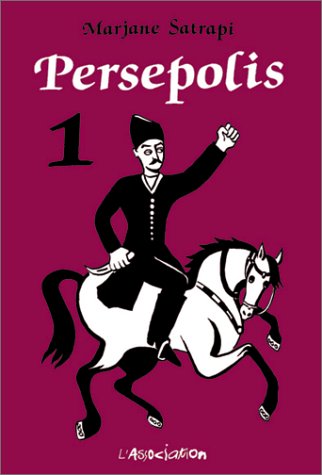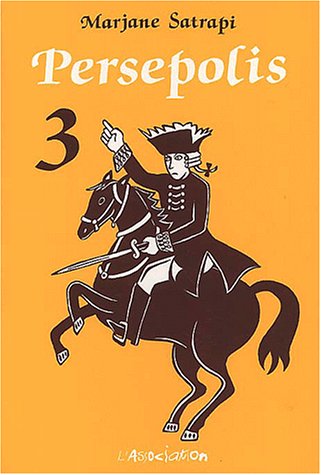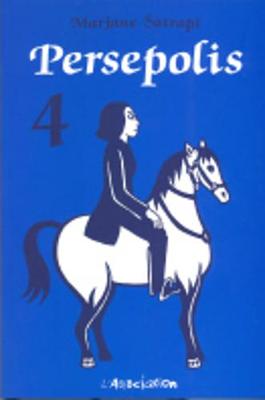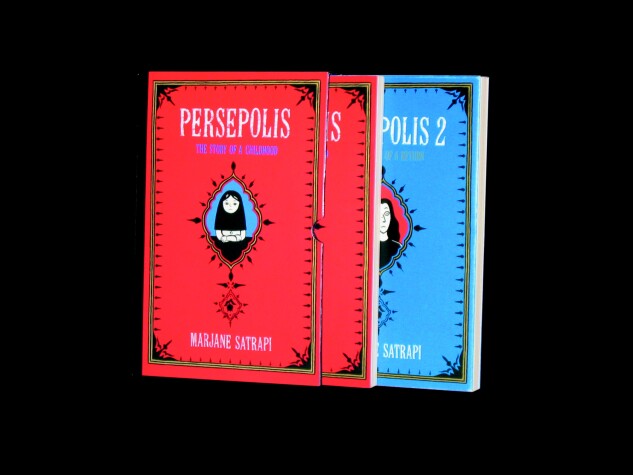Persepolis
4 primary works • 6 total works
Book 1
Book 2
Here is the fascinating and equally unforgettable sequel to Persepolis, Marjane Satrapi's memoir-in-comic strips of growing up in Iran during the Islamic Revolution. Persepolis ended on a cliffhanger in 1984, just as fourteen-year-old Marjane was leaving behind her home in Tehran, escaping fundamentalism and the war with Iraq to begin a new life in the West.
Here we follow our young, intrepid heroine through the next eight years of her life: an eye-opening and sometimes lonely four years of high school in Vienna, followed by a supremely educational and heartwrenching four years back home in Iran. Just as funny and heartbreaking as its predecessor - with perhaps an even greater sense of the ridiculous inspired by life in a fundamentalist state - Persepolis 2 is also as clear-eyed and searing in its condemnation of fundamentalism and its cost to the human spirit. In its depiction of the universal trials of adolescent life and growing into adulthood - here compounded by being an outsider both abroad and at home, and by living in a state where you have no right to show your hair, wear make-up, run in public, date, or question authority - it's raw, honest, and incredibly illuminating.
Book 3
Book 4
Here, an attractive boxed set of Marjane Satrapi's best-selling, internationally acclaimed graphic memoir "of growing up as a girl in revolutionary Iran.... That Satrapi chose to tell her remarkable story as a gorgeous comic book makes it totally unique and indispensable" (Time).
Persepolis: The Story of a Childhood
Wise, funny, and heartbreaking, Persepolis is Marjane Satrapi’s memoir of growing up in Iran during the Islamic Revolution. In powerful black-and-white comic strip images, Satrapi tells the story of her life in Tehran from ages six to fourteen, years that saw the overthrow of the Shah’s regime, the triumph of the Islamic Revolution, and the devastating effects of war with Iraq. The intelligent and outspoken only child of committed Marxists and the great-granddaughter of one of Iran’s last emperors, Marjane bears witness to a childhood uniquely entwined with the history of her country.
Persepolis paints an unforgettable portrait of daily life in Iran and of the bewildering contradictions between home life and public life. Marjane’s child’s-eye view of dethroned emperors, state-sanctioned whippings, and heroes of the revolution allows us to learn as she does the history of this fascinating country and of her own extraordinary family. Intensely personal, profoundly political, and wholly original, Persepolis is at once a story of growing up and a reminder of the human cost of war and political repression. It shows how we carry on, with laughter and tears, in the face of absurdity. And, finally, it introduces us to an irresistible little girl with whom we cannot help but fall in love.
Persepolis 2: The Story of a Return
Here is the continuation of Marjane Satrapi's fascinating story. In 1984, Marjane flees fundamentalism and the war with Iraq to begin a new life in Vienna. Once there, she faces the trials of adolescence far from her friends and family, and while she soon carves out a place for herself among a group of fellow outsiders, she continues to struggle for a sense of belonging.
Finding that she misses her home more than she can stand, Marjane returns to Iran after graduation. Her difficult homecoming forces her to confront the changes both she and her country have undergone in her absence and her shame at what she perceives as her failure in Austria. Marjane allows her past to weigh heavily on her until she finds some like-minded friends, falls in love, and begins studying art at a university. However, the repression and state-sanctioned chauvinism eventually lead her to question whether she can have a future in Iran.
As funny and poignant as its predecessor, Persepolis 2 is another clear-eyed and searing condemnation of the human cost of fundamentalism. In its depiction of the struggles of growing up—here compounded by Marjane’s status as an outsider both abroad and at home—it is raw, honest, and incredibly illuminating.




